Ptsd Car Accident Settlement in Ontario, Canada
How to Maximize Your PTSD Car Accident Settlement in Ontario, Canada
Post-traumatic Stress Disorder (PTSD) is a severe condition of the mind that can develop following a traumatic event, such as a vehicle accident in Ontario. PTSD can lead to lasting psychological trauma and significantly negatively impacts an individual’s quality of life. In Ontario, those who have PTSD due to auto accidents may be entitled to certain legal protections and financial compensation.
This webpage will look at the causes of PTSD in car accidents, signs and symptoms to look out for, ways to handle it, coping strategies and average settlements for those suffering from PTSD after an auto accident in Ontario. It also provides resources for individuals seeking more information regarding this serious condition.
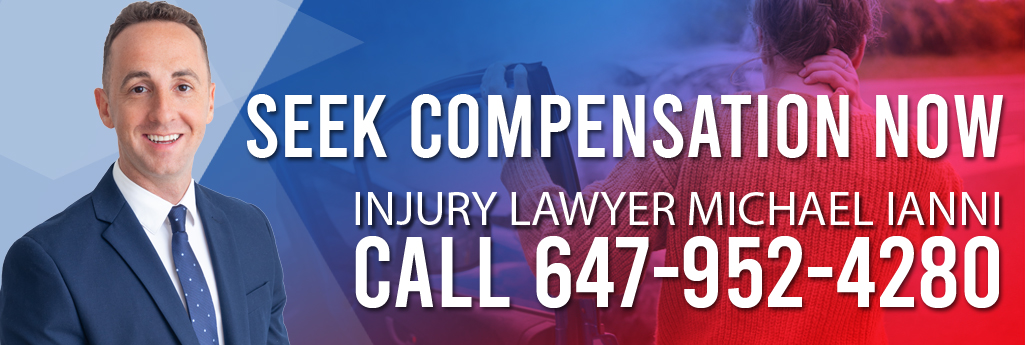
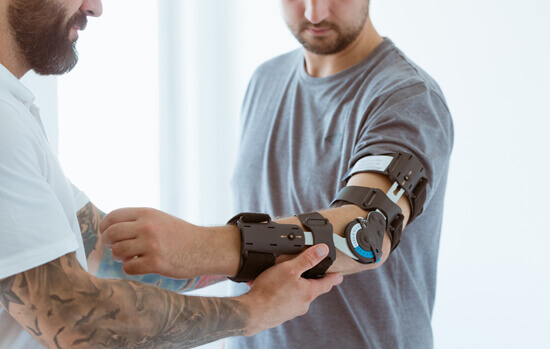
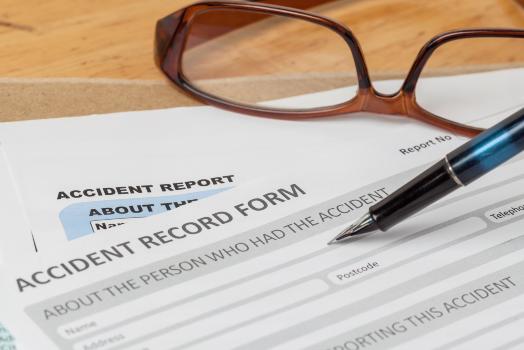
Ptsd Car Accident Settlement in Ontario, Canada
What Is Ptsd and the Causes of Ptsd in Car Accidents in Ontario, Canada
Post-traumatic Stress Disorder (PTSD) is a mental health order that can develop in individuals who have experienced or witnessed a distressing event such as a car accident. In Ontario, car accidents are one of the leading causes of PTSD due to the physical and emotional trauma they can inflict on those involved.
Understanding the factors that contribute to the development of PTSD in car accident victims is essential for early intervention, proper treatment, and support. In Ontario, Canada, several factors contribute to the causes of PTSD following a car accident.
These factors cover the following:
- The severity of the Accident: The severity of the car accident plays a significant role in the development of PTSD. Accidents involving severe injuries, fatalities, or considerable property damage are more likely to result in traumatic psychological effects.
- Personal Involvement: Individuals who were directly involved in the car accident, such as drivers or passengers, are at a higher risk of developing PTSD. They may experience helplessness, fear, or intense vulnerability during the traumatic event.
- Proximity to the Event: Even individuals who witnessed a car accident but were not directly involved can develop PTSD. Bystanders, pedestrians, or individuals in nearby vehicles may experience psychological trauma due to the sudden and distressing nature of the accident.
- Previous Trauma: People who have previously experienced traumatic events, such as past car accidents, physical or sexual abuse, or other life-threatening situations, may be more susceptible to developing PTSD following a car accident in Ontario. These individuals may have heightened sensitivity to traumatic experiences.
- Lack of Social Support: Adequate social support following a car accident can help mitigate the risk of developing PTSD. Individuals who lack a strong support system, including friends, family, or access to mental health resources, may be at a higher risk of experiencing prolonged distress and developing PTSD.
- Pre-existing Mental Health Conditions: Individuals with pre-existing mental health conditions, such as anxiety, jumble or depression, may be more vulnerable to developing PTSD after a car accident. The traumatic event can exacerbate existing symptoms or trigger new ones.
- Coping Mechanisms: The ability to effectively cope with stress and trauma can influence the likelihood of developing PTSD. Individuals who lack healthy coping mechanisms or have difficulty processing and regulating their emotions may be more susceptible to the development of PTSD.
- Loss of Loved Ones: Losing a loved one in a car accident can be an incredible experience and a significant contributing factor to PTSD. The grief and emotional turmoil following the loss can intensify the psychological impact of the accident.
- Witnessing Trauma: Witnessing a traumatic event, such as a severe car accident or its aftermath, can lead to PTSD, even if the person was not directly involved in the accident. The shock and horror of witnessing such events can have lasting psychological effects.
It is important to note that each person’s response to a car accident and the subsequent development of PTSD is unique. Not everyone involved in a car disaster will develop PTSD. In contrast, others may experience different psychological outcomes, such as acute stress disorder or adjustment disorders.
Suppose you or someone you know in Ontario has been involved in a car accident and is experiencing symptoms of PTSD. In that case, it is crucial to seek professional help. Mental health qualified, such as psychologists or psychiatrists, can provide a proper investigation and develop a personalized treatment plan to address the symptoms and promote healing and recovery.
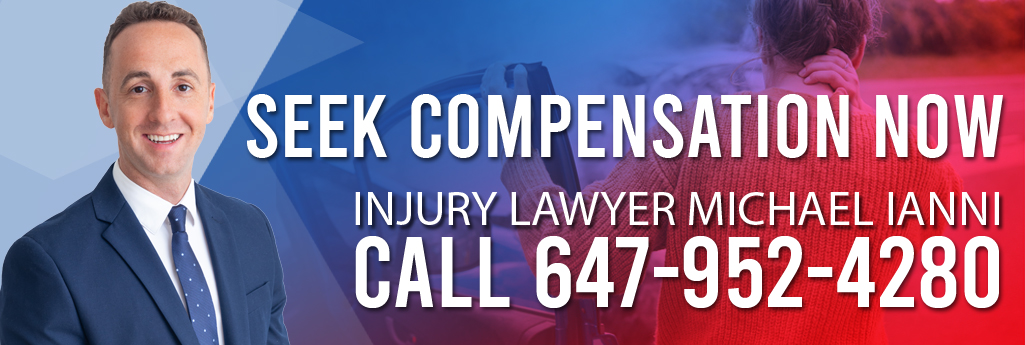

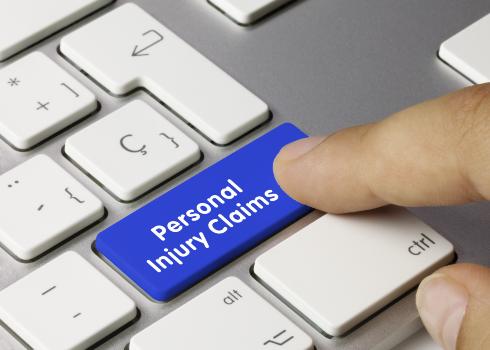
Ptsd Car Accident Settlement Amount in Ontario, Canada
Symptoms of PTSD After a Car Accident in Ontario, Canada
Experiencing a car accident in Ontario can be traumatic. For some individuals, it may lead to the development of Post-traumatic Stress Disorder (PTSD). It is important to be aware of the signs and symptoms of PTSD to seek appropriate help and support.
Common signs of PTSD after a car accident in Ontario may include:
- Intrusive Thoughts and Memories: Vivid and distressing memories of the car accident may resurface unexpectedly. Flashbacks, nightmares, or intrusive thoughts can make concentrating or engaging in daily activities difficult.
- Avoidance Behaviors: Those with PTSD may avoid reminders of the car accident, such as driving or near the incident site. They may also avoid discussing the event or experiencing emotions associated with it.
- Hyperarousal and Hypervigilance: Individuals may exhibit heightened alertness, always expecting danger. They may experience difficulty sleeping, irritability, exaggerated startle response, or feel constantly on edge.
- Emotional Distress: PTSD can cause intense and prolonged emotional distress. Feelings of fear, guilt, anger, sadness, or shame may persist, affecting relationships, work, and overall well-being.
- Negative Mood and Beliefs: Those with PTSD may develop negative beliefs about themselves, others, or the world. They may lose interest in activities they once enjoyed, experience feelings of detachment, or have a negative outlook on the future.
- Physical Symptoms: PTSD can manifest in physical symptoms such as headaches, gastrointestinal problems, muscle tension, and increased heart rate. These symptoms may not have a clear medical explanation.
- Social Withdrawal: Individuals with PTSD may isolate themselves from social interactions, experiencing difficulties maintaining relationships or participating in social activities.
- Emotional Triggers: Certain triggers can evoke intense emotional or physiological reactions in individuals with PTSD. These triggers may include sights, sounds, smells, or situations that remind them of the car accident.
- Emotional Numbing: People with PTSD may experience emotional numbing or a sense of detachment from their surroundings and loved ones. They may have difficulty experiencing positive emotions or forming close relationships.
- Hypervigilance: Individuals with PTSD may constantly scan their environment for potential threats, even in objectively safe situations. This hypervigilance can contribute to a heightened sense of anxiety and constant alertness.
- Sleep Disturbances: Sleep problems are common among those with PTSD. They may experience difficulties falling asleep, staying asleep, or having a restful sleep due to nightmares or intrusive thoughts.
- Self-Destructive Behavior: Some individuals with PTSD may engage in self-destructive behaviours to cope with their distressing symptoms. This can include substance abuse, reckless behaviour, or self-harm.
- Cognitive Distortions: PTSD can lead to distorted thinking patterns, including negative beliefs about oneself, others, or the world. Individuals may develop a negative perspective, expecting the worst or feeling a constant sense of impending danger.
- Memory and Concentration Problems: Difficulty with memory and concentration are common in individuals with PTSD. They may struggle to recall specific car accident details or have difficulties focusing on tasks.
- Heightened Startle Response: Individuals with PTSD may have an exaggerated startle response, easily startled by sudden or unexpected noises, movements, or stimuli. This can further contribute to feelings of anxiety and unease.
- Guilt and Shame: Survivors of car accidents with PTSD may experience survivor’s guilt or harbour feelings of shame related to the accident. They may blame themselves for the incident or have irrational thoughts that they could have prevented it.
It’s important to note that not everyone with PTSD will experience all of these symptoms. Symptoms can vary in intensity and duration from person to person. If you or someone you know is experiencing these symptoms following a car accident in Ontario, it is essential to seek professional help for proper diagnosis and treatment. A mental health professional can provide guidance, support, and appropriate interventions to address the symptoms and promote recovery.
Remember, early recognition and intervention can greatly improve the prognosis for individuals with PTSD. With the right support, it is possible to manage symptoms, regain control, and move toward healing and recovery.
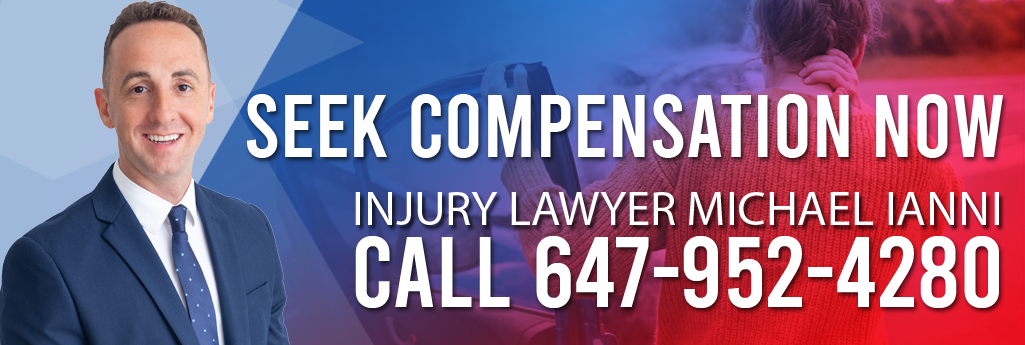

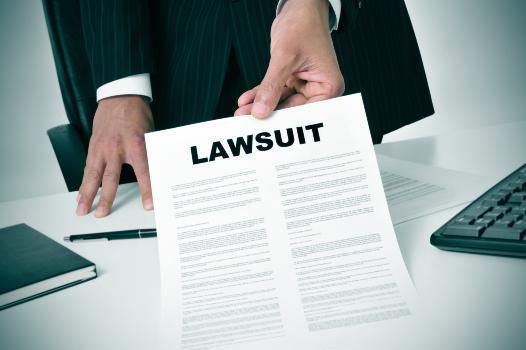
Average Settlement for Ptsd After a Car Accident in Ontario, Canada
How to Handle Ptsd After a Serious Car Accident in Ontario, Canada
Experiencing a serious car accident in Ontario can leave individuals with lingering emotional and psychological effects, including Post-traumatic Stress Disorder (PTSD). Coping with PTSD after such an event requires patience, support, and a proactive approach to healing.
Here are some strategies to help handle PTSD after a serious car accident in Ontario:
- Seek Professional Help: Reach out to a mental health professional experienced in trauma-related disorders. They can provide a proper diagnosis, offer therapy options tailored to your needs, and guide you through recovery.
- Acknowledge Your Feelings: Allow yourself to acknowledge and process your emotions. It is normal to feel a range of emotions, such as shock, fear, anger, sadness, or guilt. Give yourself permission to experience these feelings without judgment.
- Educate Yourself: Learn about PTSD and how it manifests after a car accident. Understanding the nature of the condition can help you make sense of your symptoms and reassure you that you are not alone in this experience.
- Practice Self-Care: Prioritize self-care to promote physical and emotional well-being. Get enough restful sleep, maintain a healthy diet, exercise regularly, and practice relaxation techniques such as deep breathing, meditation, or yoga.
- Establish a Support System: Surround yourself with understanding and compassionate individuals. Share your experiences with trusted family members, friends, or support groups who can provide empathy, encouragement, and a listening ear.
- Attend Therapy: Consider therapy options such as Cognitive Behavioral Therapy (CBT), Eye Movement Desensitization and Reprocessing (EMDR), or other evidence-based approaches. Therapy can help you process the traumatic event, challenge negative thoughts, and develop effective coping strategies.
- Engage in Exposure Therapy: Gradually facing triggering situations can be part of the healing process. Work with a therapist to develop a plan for controlled exposure to conditions or stimuli that evoke anxiety, helping you regain control and reduce avoidance behaviours.
- Practice Stress Management: Incorporate stress management techniques into your daily routine. Engage in activities that help you relax and unwind, such as hobbies, art, writing, or spending time in nature. Explore mindfulness practices to stay present and manage stress.
- Build Resilience: Focus on building resilience and improving emotional well-being. This can include cultivating a positive mindset, nurturing healthy relationships, setting realistic goals, and celebrating small achievements.
- Address Legal and Financial Matters: Consult with professionals who can help you navigate the car accident’s legal or financial aspects. Resolving these matters can provide a sense of closure and alleviate additional stressors.
- Establish a Routine: Creating a structured routine can provide stability and a sense of control during uncertainty. Set daily goals, establish regular sleep patterns, and maintain a healthy lifestyle to promote stability and a sense of normalcy.
- Be Patient and Kind to Yourself: Recovery from PTSD takes time and varies for each individual. Be patient with yourself and acknowledge that healing is a gradual process. Treat yourself with kindness, self-compassion, and understanding throughout the journey.
Remember, you are not alone in your struggle with PTSD after a serious car accident in Ontario. By seeking appropriate support, practicing self-care, and implementing effective coping strategies, you can regain control, find healing, and move towards a brighter future.
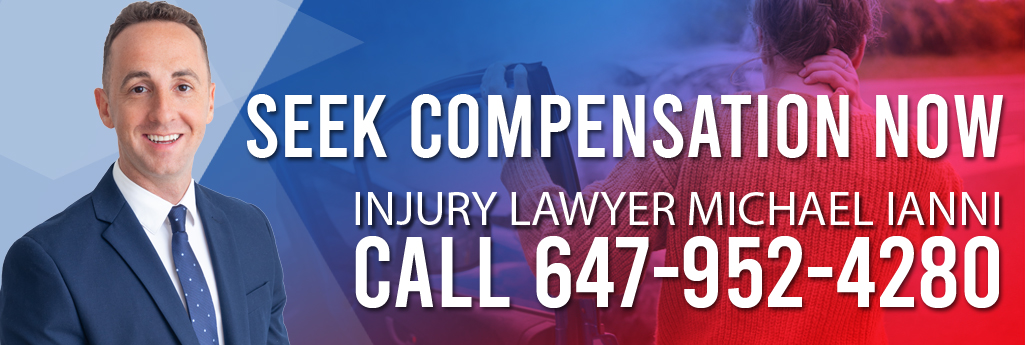
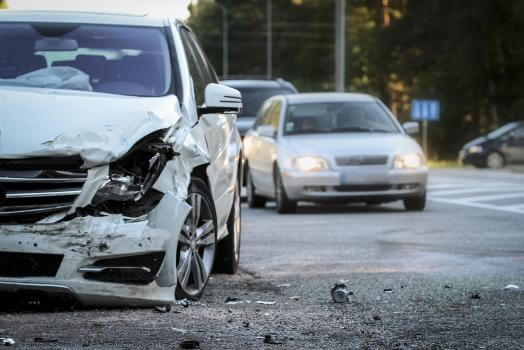
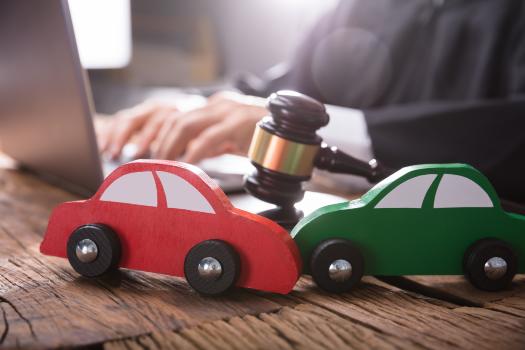
Ptsd After a Car Accident Settlement in Ontario, Canada
Average Settlement for Ptsd from a Car Accident in Ontario, Canada
There is no average settlement amount for PTSD from a car accident in Ontario. The compensation you receive will depend on the severity of your injuries, the impact of your PTSD on your life, and other factors.
PTSD is a serious mental health condition caused by a traumatic event like a car accident. Symptoms of PTSD can include flashbacks, nightmares, anxiety, and avoidance of reminders of the traumatic event. PTSD can significantly impact your life, making it difficult to work, socialize, and enjoy activities you used to enjoy.
Suppose you have been diagnosed with PTSD after a car accident. In that case, you may be able to file a personal injury claim to recover compensation for your medical expenses, lost wages, pain and suffering, and other damages. A personal injury lawyer can help you understand your legal rights and options and fight for the compensation you deserve.
Here are some factors that may affect the amount of compensation you receive for PTSD:
- The severity of your PTSD: The more severe your symptoms, the more likely you will receive a higher settlement.
- The impact of your PTSD on your life: If your PTSD has caused you to lose your job, have difficulty socializing, or enjoy activities you used to enjoy, you may be able to recover more compensation.
- The other damages you have suffered: In addition to your PTSD, you may have also suffered physical injuries, lost wages, and other damages. The total compensation you receive will depend on all the damages you have suffered.
- Medical Expenses: The cost of medical treatment, therapy, and medications related to PTSD will be considered in the settlement. This includes past and future medical expenses necessary for the individual’s recovery and management of symptoms.
- Psychological Assessment: A comprehensive psychological assessment is often conducted to evaluate the extent of PTSD and its impact on the individual’s life. The findings of the evaluation can influence the settlement amount.
- Pain and Suffering: Compensation for discomfort, suffering, and emotional distress resulting from the car accident and subsequent PTSD is another crucial consideration. This aspect aims to acknowledge the non-economic damages endured by the individual.
- Legal Factors: The expertise and negotiation skills of the legal representatives involved, the specific circumstances of the case, and any legal precedents can also influence the settlement amount.
If you have been diagnosed with PTSD after a car accident, it is important to seek legal representation. A personal injury lawyer can help you to be aware of your legal rights and alternatives, as well as fight for the compensation you are entitled to.
Here are some examples of settlements that have been awarded for PTSD after a car accident:
- A woman diagnosed with PTSD after a car accident was awarded $1 million in settlement. The woman had been driving home from work when she was hit by a drunk driver. She suffered a broken leg, a concussion, and PTSD. The settlement included compensation for her medical expenses, lost wages, and pain and suffering.
- A man diagnosed with PTSD after a car accident was awarded $500,000 in settlement. The man was driving to work when he was hit by a car that ran a red light. He suffered a broken arm, a concussion, and PTSD. The settlement included compensation for his medical expenses, lost wages, and pain and suffering.
It is important to note that these are just a few examples and that the amount of coverage you receive will depend on the specific facts of your case. Suppose you have been diagnosed with PTSD after a car accident. In that case, speaking with a personal injury lawyer is important to discuss your legal rights and options.
To determine an appropriate settlement amount, it is advisable to discuss with an experienced personal injury lawyer who can evaluate the unique factors of your case, assess the potential damages, and advocate for your rights. They will work to ensure that you receive fair compensation for the physical, sentimental, and financial impacts of your PTSD resulting from the car accident.
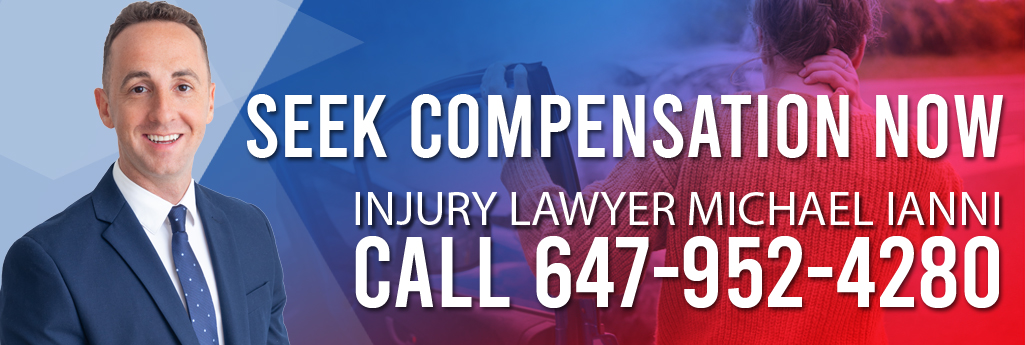
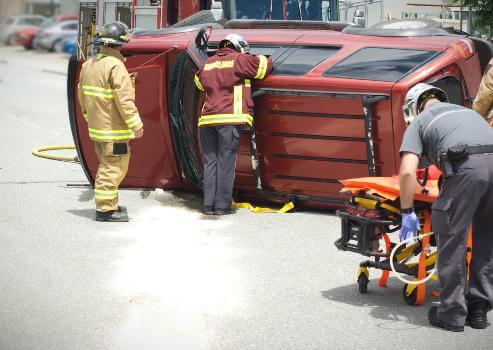

Settlement for Ptsd After a Car Accident in Ontario, Canada
in Ontario, Canada
*The laws pertaining to automotive injuries are complex and are contsantly evolving. The information on this website was not written by legal professionals and should not be considered legal advise. Please contact a professional personal injury lawyer serving Ontario for the most up to date and accurate information.






